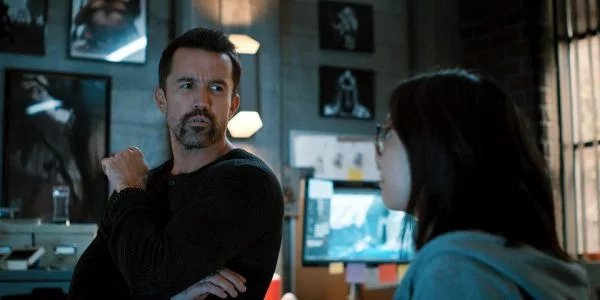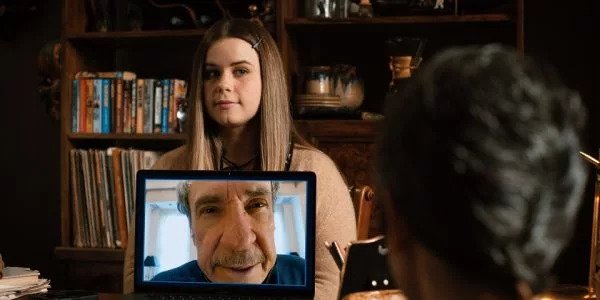
For those who thought The Morning Show was all Apple had to offer think again. Carrying influences from The Office into new territory, Mythic Quest thrived on dysfunctional dynamics and a central performance from Rob McElhenney that tied everything together. Aided and abetted by an outstanding cast including Charlotte Nicdao, David Hornsby and F. Murray Abraham it felt fresh. By crafting a character piece within the world of online gaming, alumni from It’s Always Sunny In Philadelphia delivered a truly touching opener.
Having introduced, progressed and broadened individual character arcs among the principal players, season two keeps building. Poppy and Ian explore their new dynamic, Jessie Ennis carves out a more divisive niche for Jo and Danny Pudi excels as conniving money man Brad. Having so savagely dissected the millennial demographic in the opening season, certain themes are carried over, making this sophomore effort even more engaging.

Sexual politics gel with office relationships, while alpha male behaviours clash with an ever evolving sense of female empowerment. David Hornsby continues to excel as an ineffectual office presence, drawing both humour and empathy in equal measure. Charlotte Nicdao’s Poppy remains the heart of this show, gaining ground on Rob McElhenney’s Ian without ever grandstanding. Her natural ability to convey intelligence, vulnerability and comic timing more than matches the preening antics of those around her. Their dynamic, comedic left field offerings from F. Murray Abraham and an undercurrent of genuine pathos all play a part.
Beyond the pitch perfect performances which make Mythic Quest such a pleasure to watch, it also draws attention to industry specific issues. Overworked programmers, gender inequality and the excessive power of teenage influencers comes under fire. Deadlines, creative curveballs and moments of sexual discovery all form the tapestry of this polished second run.

Writers Rob McElhenney, Charlie Day, Ashly Burch and David Hornsby have taken what made Mythic Quest work, then expanded on a winning formula. Every one of these characters is infinitely human, lovingly flawed but ultimately interdependent. By embracing the cringeworthy elements of office politics which made The Office so relatable, Mythic Quest has successfully poked fun at a multi-billion-dollar industry.
It continues to explore the dichotomy between corporate need and creative vision, by pitching Poppy’s technical background against Ian’s instinctively individual approach. In so doing, it demonstrates that both ways have merit but never compromises either character. Global pandemics are also addressed in the subtlest way, whilst still allowing a resident Oscar winner to deliver comedy gold over a Wi-Fi connection.

For many, this show will lose favour because audiences know what to expect now. Dynamics have been established, conflicts carved in stone and parameters defined. It happened with Friends, The Big Bang Theory, Breaking Bad and Scrubs to name a few. That is no reason to stop watching, change the channel or move on prematurely. When a series gathers momentum, garners audience approval and captures the zeitgeist, it would be wise to stick around.


